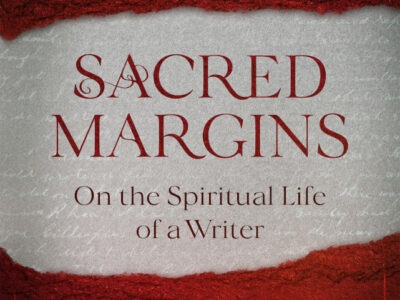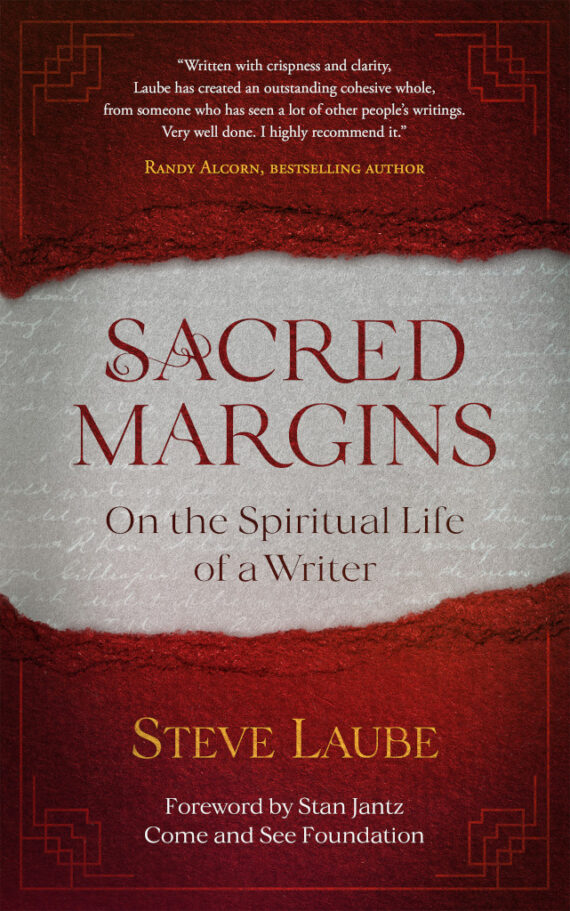The Steve Laube Agency is committed to providing top quality guidance to authors and speakers. Our years of experience and success brings a unique service to our clients. We focus primarily in the Christian marketplace and have put together an outstanding gallery of authors and speakers whose books continue to make an impact throughout the world.
Our Service Philosophy

Content
To help the author develop and create the best book possible. Material that has both commercial appeal and long-term value.

Career
To help the author determine the next best step in their writing career. Giving counsel regarding the subtleties of the marketplace as well as the realities of the publishing community.

Contract
To help the author secure the best possible contract. One that partners with the best strategic publisher and one that is mutually beneficial for all parties involved.
Recent Posts
Monday Moments – March 2, 2026
Today’s moment is the first of many, loosely based on my new book, Sacred Margins: On the Spiritual Life of a Writer. Let me know your thoughts in the comments.
The transcript of the video is below. If you cannot see the video, click through to our website or to YouTube, where you can view it.
The book itself will be released on May 19th of this year in paperback, ebook, and audio formats. You can find the book here: https://amzn.to/3P5jVj8.
Transcript:
Today’s episode is called “Why the Margins Are Sacred.”
Most people think the power of writing is in the words themselves.
But often, the real power is found somewhere else.
In the margins.
A blank page has no margins at all. The margins only appear once words are written.
And yet, writers live in those spaces.
The space between words.
The space between lines.
The space between what is said—and what is left unsaid.
Those margins are not empty.
They are invitations.
God has always worked in the margins.
In wilderness places.
In silence.
In waiting.
The writer is not called to perfect sentences, but to obedience.
Not to control outcomes, but to place words where the Spirit can work.
The world is loud. Chaotic. Relentless.
And yet Christ calmed the storm with a word.
Could it be that God has entrusted you with a word—
not to shout,
but to speak or write carefully—
so that someone else’s storm might grow still?
Writing, therefore, is not performance.
It is participation.
We place the marks.
God fills the margins.
And that is why they are sacred.
…..
Thank you for listening.
Until next time—write faithfully.
Leave a CommentFun Fridays – February 27, 2026
Hilarious comedy sketch! Imagine trying to rehearse this without busting out laughing. (If you cannot view this video in your email newsletter, please click through to view it on our website.) ShareTweet
Christians and Censorship
As proof of how different life is for a disciple of Jesus Christ and someone who is a follower of the world, consider the issue of censorship. At the risk of fueling a political debate with all the accompanying fun and frivolity, while various governmental documents or policies might allow free speech, freedom of the press, and other forms of expression, Christ-followers adhere to a higher standard. Of course, those areas of the world that allow greater freedom give the Church some protection in communicating its message of hope. And that’s a good thing we should be thankful for. But …
The Inciting Incident Series (Part One)
Every unforgettable story begins with one catalytic moment—an interruption so sharp and unexpected that the protagonist cannot continue life as usual. This moment is known as the inciting incident, the event that not only disrupts the ordinary world but launches the main story arc. In other words, without the inciting incident, the story doesn’t exist. So, keeping that in mind, let’s take a deep dive into what this moment truly is, why it matters, and how it works. Definition Short Definition: “The event that disrupts the protagonist’s ordinary world and sets the main story in motion.” Longer Definition: The inciting incident is …
Your Calling Is a Zig-Zag
Today we have a guest post from Will Parker Anderson, senior editor at WaterBrook Multnomah, both imprints of Penguin Random House Christian. He is also the founder of Writers Circle, a community to help Christian writers sharpen their skills and publish their work for the glory of Jesus. You can find his newsletter and podcast there. I recommend you subscribe to his Substack. There, he brings great thoughts to the writing life. Today’s post is but one example. _________ I never planned to be an editor. Here’s my journey in a nutshell: I’m a journalism student turned pastor turned part-time …




